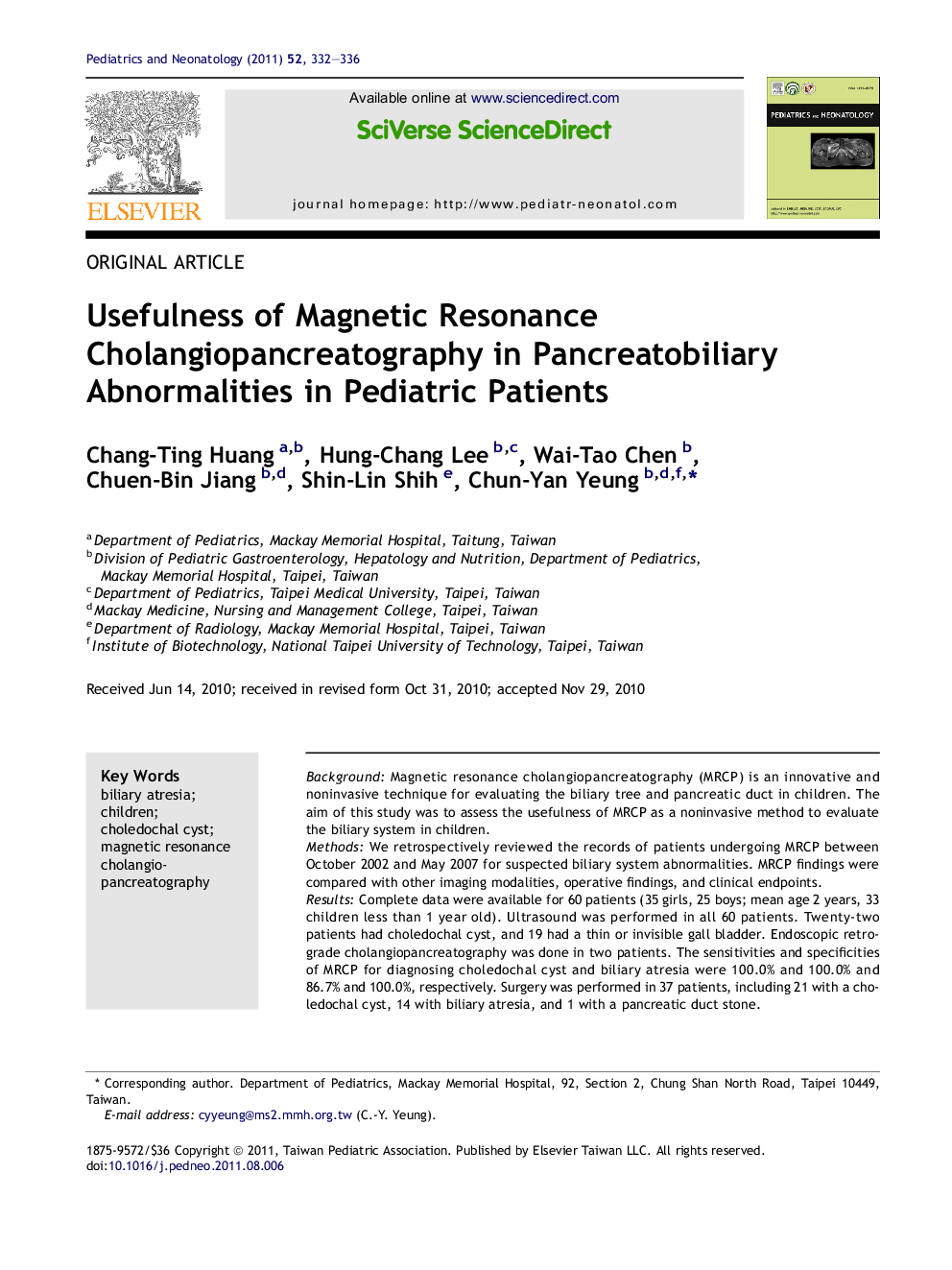| Article ID | Journal | Published Year | Pages | File Type |
|---|---|---|---|---|
| 4175440 | Pediatrics & Neonatology | 2011 | 5 Pages |
BackgroundMagnetic resonance cholangiopancreatography (MRCP) is an innovative and noninvasive technique for evaluating the biliary tree and pancreatic duct in children. The aim of this study was to assess the usefulness of MRCP as a noninvasive method to evaluate the biliary system in children.MethodsWe retrospectively reviewed the records of patients undergoing MRCP between October 2002 and May 2007 for suspected biliary system abnormalities. MRCP findings were compared with other imaging modalities, operative findings, and clinical endpoints.ResultsComplete data were available for 60 patients (35 girls, 25 boys; mean age 2 years, 33 children less than 1 year old). Ultrasound was performed in all 60 patients. Twenty-two patients had choledochal cyst, and 19 had a thin or invisible gall bladder. Endoscopic retrograde cholangiopancreatography was done in two patients. The sensitivities and specificities of MRCP for diagnosing choledochal cyst and biliary atresia were 100.0% and 100.0% and 86.7% and 100.0%, respectively. Surgery was performed in 37 patients, including 21 with a choledochal cyst, 14 with biliary atresia, and 1 with a pancreatic duct stone.ConclusionMRCP is useful method for evaluation of the pancreaticobiliary system in pediatric patients. It yields a high degree of accuracy in the diagnosis of biliary atresia and choledochal cyst.
